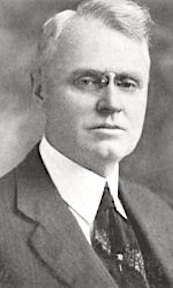
Sports: Football & Baseball
Born: May 27, 1872
Died: August 12, 1949
Town: Cape May, New Jersey
David LeRoy Reeves was born May 27, 1872 in Cape May, NJ. A gifted athlete, David was a fine hitter and outfielder for the South Jersey Institute, a college prep school in Bridgeton, where he also excelled in the rapidly evolving sport of football. He enrolled at Lafayette College in the early 1890s and became the quarterback of the football team. In his final season, he played for the legendary Parke Davis. David also played baseball for Lafayette, as well as for the Cape May club, which was one of the best semipro outfits in New Jersey.
In 1898, David was hired as the first football coach at Drexel Institute in Philadelphia. The Dragons, captained by Charles Carson, were undefeated and did not allow a single point all season. Their opponents included mostly regional high schools, however.
After his one season as a coach, David went to work for The Times, a Philadelphia newspaper, where he became the associate sports editor under Dan Mills. While working at the paper, David earned a law degree at the University of Pennsylvania. He was promoted to managing sports editor after Mills won $19,500 playing roulette and retired. Later, David held the same position at the Public Ledger, a paper owned by the Drexel family.
David became the treasurer and secretary of the Philadelphia Phillies baseball team in his 30s. He worked in this capacity for many years, including a stint under controversial owner Horace Fogel, himself a former sportswriter. Fogel was forced out of ownership following the 1912 season and David decided to accept an offer to become secretary of the National League in 1913, under new NL president John Tener. Tener was Pennsylvania governor at the time. They presided during a complicated period for baseball, as the Federal League started up in 1914.
David went back to the newspaper business in 1917, and then returned to his alma mater as Lafayette’s athletic manager four years later. In his first year at the helm, the football team went undefeated and claimed the #1 national ranking. Under his directorship, Fisher Stadium was completed in 1926. That fall, the football team went 9–0 and claimed another national title. It was one of four undefeated football teams for the Leopards during David’s time with the school. He also oversaw constructed of Memorial Gymnasium.
David retired in 1946 and passed away three years later at his home in Cape May, at the age of 77.